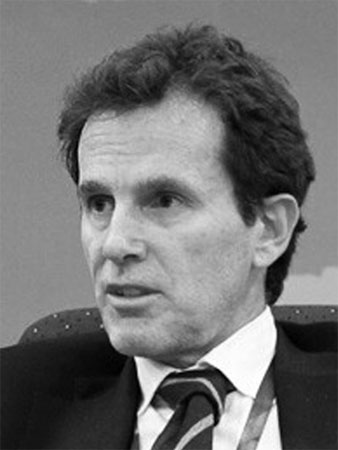US reluctant to surrender dollar's dominance
 |
|
Xia Bin |
 |
|
Stefano Fantacone |
Q: What's wrong with the quantitative easing (QE) policy? Many Americans think it could create another round of consumption and boost growth. Do you believe this?
Xia: Quantitative easing is more commonly known as the reckless issuing of currency. Some Western media have used "19+1" to describe the global position on the policy, contrasting all other G20 members, including China, with the US.
Unemployment in the US is a structural problem. The US doesn't lack capital, so it should focus on how to get high investment return and realize structural adjustments. Issuing money is no use.
Fantacone: I think this second round of quantitative easing has nothing to do with a new monetary system. It is a new tool to cope with economic recession. It is normal for central bank to take such a measure when its economy is in recession.
Snower: Quantitative easing not only increases the supply of money but also reduces the volatility of financial assets. Because quantitative easing is a temporary measure, it will have to be undone in the future. Once this is undone, the financial market will become more volatile.
Cao: From the perspective of structural adjustment, I personally believe that the process in Western countries is very slow. Monetary policy stimulus is still their first choice. The first round of quantitative easing in the US contributed to maintaining the domestic economic order and prevent inflation.
However, whether the effects of quantitative easing are limited and what uncertainty it has are still unknown. Besides, it will bring difficulties to developing countries in financial regulation and dealing with hot money.
Q: How should we move toward a basket of currencies system?
Snower: I think we require two things, an international regulatory regime for the financial market and much more attention to structural policies.
China has taken steps toward improving spending on health and education and social insurance. This is not only important in raising living standards, but also important as a way to cushion people against shocks, thereby inducing them to devote less of their income toward saving and more toward consumption, because this cushion would be a substitute for saving. That would be a major structural response to global imbalance.
Cao: The most important lesson we should learn from the financial crisis is that we should pay attention to two equilibriums. One is the equilibrium between consumption and savings in the real economy, and the other is the equilibrium between financial products and regulation.
I think the interest and exchange rates are determined by the market, and the two equilibriums are all affected by political factors.
 0
0 







Go to Forum >>0 Comments